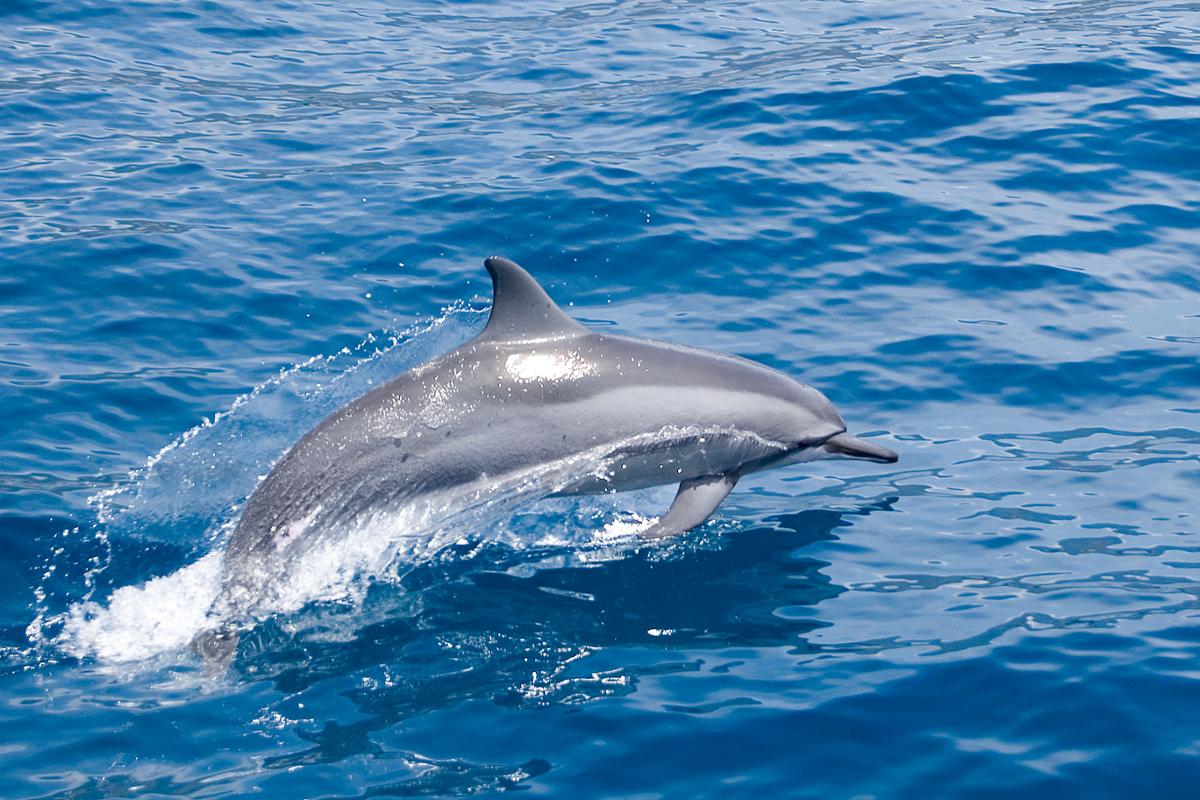Y: Are you watching dolphin videos, Don?
D: I needed a break from cute dog videos. Come look at this one of a bottlenose dolphin teaching her calf how to hunt.
Y: Are they catching anything?
D: No, but it’s still entertaining.
Y: You know, scientists have been looking at bottlenose dolphins recently to try to figure out how menopause evolved.
D: Do dolphins go through menopause?
Y: They don’t, but their similarities to killer whales, short-fin pilot whales, and false killer whales—the only mammals apart from humans to undergo menopause—makes them a good study subject. After looking at data set of information about 229 female dolphins and their 562 calves over a period of 34 years, researchers found that calves born to older mothers are more likely to die by the age of 3 than calves born to younger mothers. Researchers also found that older mothers nurse their later-in-life calves longer—5 years on average, and occasionally up to 8 years, as opposed to the 4 years typical for earlier calves—maybe to give them a better shot at surviving.
D: So how does that give us any insight into the evolution of menopause?
Y: Well, this kind of extended material care by older mothers might eventually evolve into an inability to reproduce past a certain age. Especially since offspring born later in life have a lower chance of surviving, it makes sense for a mother to focus her energy on the offspring she already has rather than continuing to reproduce.
D: It seems like a lot less work, too. Sounds like a good adaptation to me.










